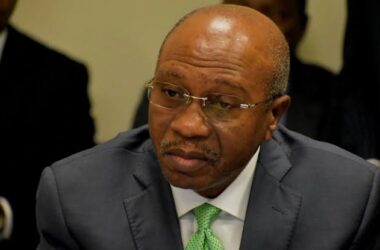The Attorney General of the Federation (AGF) and Minister of Justice, Lateef Fagbemi (SAN), has issued a directive banning the Nigeria Police Force from parading criminal suspects before the media. The decision comes as legal experts and human rights activists argue that such public displays violate fundamental rights and often lead to unfair reputational damage.
Senior police officers in both the Federal Capital Territory (FCT) and Lagos State have confirmed receiving the directive. One officer, speaking anonymously, noted, “I am aware of it. I think the directive was given by the AGF earlier this month or thereabouts and the information was passed down to us. You would have noticed some level of compliance.” Another officer in Abuja also confirmed that the police had been instructed to stop the practice.
When asked for an official reaction, the Force Public Relations Officer, Muyiwa Adejobi, stated that the police would release a formal statement on the matter at the appropriate time. “The police will react officially on the matter when it is time. We will make an official statement soon,” he said.
Legal experts and human rights advocates have long criticized the practice of parading suspects. Senior lawyer Femi Falana (SAN) has argued that it is both unconstitutional and discriminatory. “The practice of parading suspects is illegal as it constitutes a gross violation of the fundamental right of criminal suspects to the presumption of innocence guaranteed by Section 36 of the Constitution and Article 7 of the African Charter on Human and Peoples Rights,” he noted.
Falana further pointed out that the police often parade low-income individuals accused of minor crimes while politically connected persons accused of large-scale corruption are rarely subjected to the same treatment. “While poor suspects are paraded for allegedly stealing tubers of yam or telephone handsets valued at N10,000 or less, politically exposed persons accused of looting the public treasury to the tune of N10 billion or more are never paraded before the media,” he said.
The legal expert also referenced multiple court rulings that have declared the parade of suspects illegal. “There are five judgments of the ECOWAS Court and Federal High Courts which have declared the parade of suspects illegal,” he noted, adding that law enforcement agencies often use media parades to influence public perception, even though statements obtained from such displays are inadmissible in court.
Another senior lawyer, Chief Mike Ozekhome (SAN), described the practice as unjust and unnecessary. He stressed that parading suspects could permanently damage the reputations of individuals who might later be found innocent. “Such suspects, at the end of the day, may be found not guilty, but the damage done to their reputation remains permanent. Unfortunately, while people widely see and remember the parade, fewer pay attention when the courts eventually exonerate the accused,” he noted.
Ozekhome urged the Inspector General of Police to enforce the ban across all 36 state commands. “The Inspector General should direct all officers across the 36 state police commands to stop parading criminal suspects. There is no need for such displays—if the police have a solid case, they should take the suspect to court,” he added.










